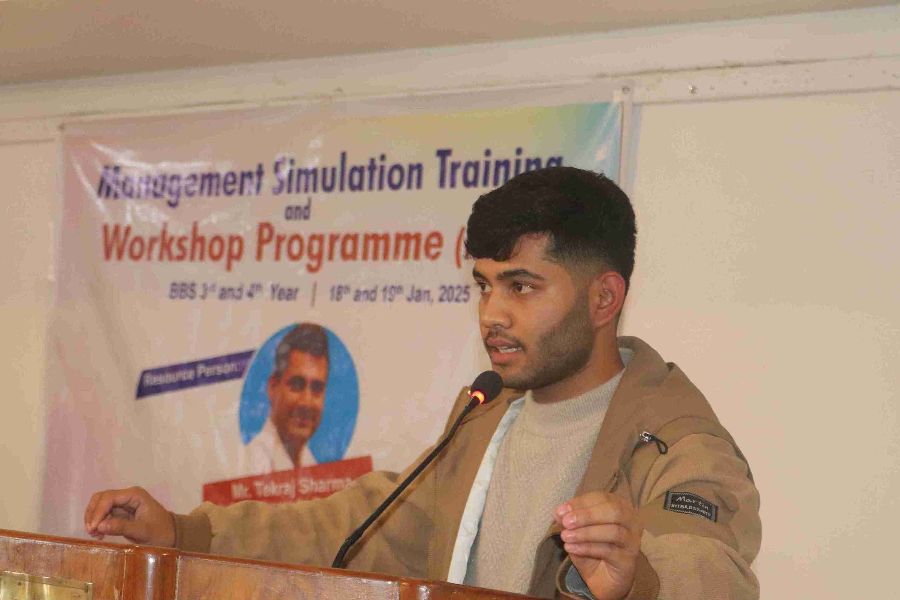Management Simulation Training and Workshop Programme- BBS 3rd & 4th Year
Published on 2025-01-26

The Management Simulation Training & Workshop Programme held on January 18th-19th, 2025, provided BBS 3rd and 4th-year students with an invaluable hands-on experience of real- world business operations. Hosted at the serene Hotel Mirable Resort in Dhulikhel, the event allowed students to step out of the classroom and immerse themselves in a simulated corporate environment. The program was designed to bridge the gap between theoretical learning and practical application, offering students a unique opportunity to experience business decision- making at its core. Facilitated by Mr. Tekraj Sharma, Senior General Manager of KL Dugar Group and President of the Human Resource Society of Nepal, the training brought expert insights into management practices and leadership skills. As a renowned resource person, Mr. Sharma guided the students through a challenging and engaging process, pushing them to think critically and collaboratively.
The main focus of the training was a detailed case study of Everest Airlines, a company facing operational and financial challenges. The students were tasked with analyzing the current state of the airline and developing strategies to improve its weakened position. The simulation began with a democratic process, where the students voted for nominees to the Chairperson of the Board and elected key leadership roles, including CEO and Member Secretary. Each student also took on a specific departmental role such as Human Resources, Finance, and Marketing including a team and Head of the department, with the responsibility of overseeing operations and collaborating with other departments to revive the company. Through interactive meetings and discussions, students worked together to understand the airline's internal dynamics and external challenges. They communicated with their respective departments and met with the Board of Directors to strategize solutions for the company’s issues.
The final exercise was a critical evaluation of the company's position using the SWOT (Strengths, Weaknesses, Opportunities, and Threats) analysis, where each department presented it's perspective on the airline's current standing. These evaluations became the foundation for the decision-making process, empowering the students to propose actionable strategies for improvement. The program was not just a theoretical exercise but it provided students with practical, real-world insights into how businesses operate. The training emphasized the importance of teamwork, effective communication, and decision-making. Students gained a deeper understanding of how a company's weaknesses can be transformed into strengths through strategic collaboration and leadership.
At last, we would like to extend our heartfelt thanks to all the mentors, supervisors, and participants for making this training a success. Their dedication and engagement ensured the program was both smooth and rewarding. The workshop has left a lasting impact on our students, and we eagerly look forward to continuing this educational journey by exploring new dimensions of learning in the future.